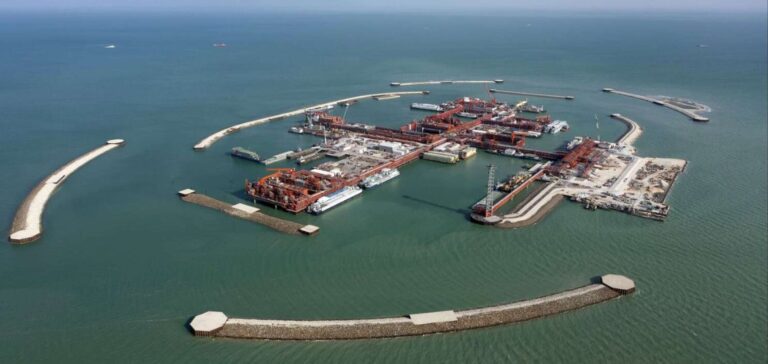Kazakhstan, a major hydrocarbon producer, said Tuesday that it has filed for international arbitration against oil giants operating strategic fields, with disputes involving $16.5 billion in deducted costs.
Quoted by the state agency Kazinform, the Minister of Energy, Almassadam Satkaliev, said he was targeting the majors operating the Kachagan and Karatchaganak fields, including Eni, Shell, TotalEnergies and ExxonMobil, as well as the Kazakh company KazMunayGas.
According to the minister, the amounts deducted as fees that the Kazakh government is questioning reach $13 billion for the Kashagan deposit and $3.5 billion for the Karachaganak deposit. The agreements for the exploitation of the two deposits stipulate that the operators can deduct costs from their revenues, before sharing these with the Kazakh government. “This is not about tax disputes, it is about the implementation of agreements on the distribution of production,” said Minister Almassadam Satkaliev, quoted by the Russian news agency Ria Novosti.
With estimated reserves of 13 billion barrels of crude oil, Kachagan is one of the largest offshore oil fields in the world. It is operated by Eni, Shell, TotalEnergies, ExxonMobil, KazMunayGas, Inpex and CNPC. Discovered in 2000 in the northern Caspian Sea, the field is however of unprecedented technical complexity and production was launched only in 2016 after years of delay and more than 50 billion dollars of expenditure. The issue of environmental damage is also becoming more and more pressing.
At the end of March, the Kazakh Minister of Ecology confirmed that he had taken legal action against the Kachagan operator, accusing it of violations of ecological standards. According to the U.S. economic agency Bloomberg, the amount sought in this dispute could reach $5.1 billion.
The onshore Karachaganak field, located in north-west Kazakhstan, has participants such as Eni, Shell, KazMunayGaz, but also the American Chevron and the Russian Loukoïl. The main Kazakh oil fields are located in the west of the country. Over the past 15 years, several strikes and social movements by oil workers in the west of the country have led to protests that have spread throughout Kazakhstan, including the unrest in January 2022 that left dozens dead. The cause is often the redistribution of oil revenues, which is considered unfair, and the corruption of the elites.





















